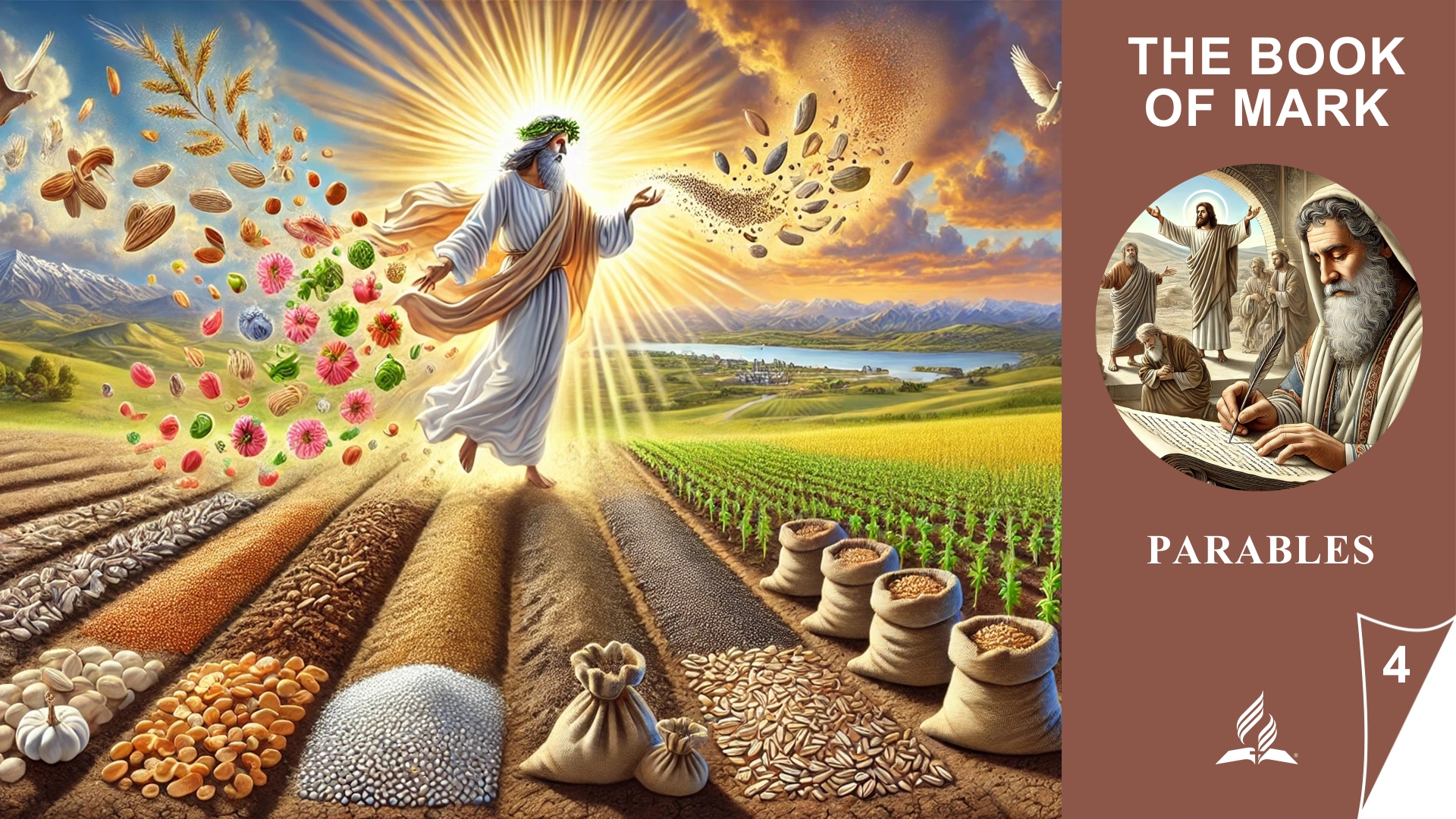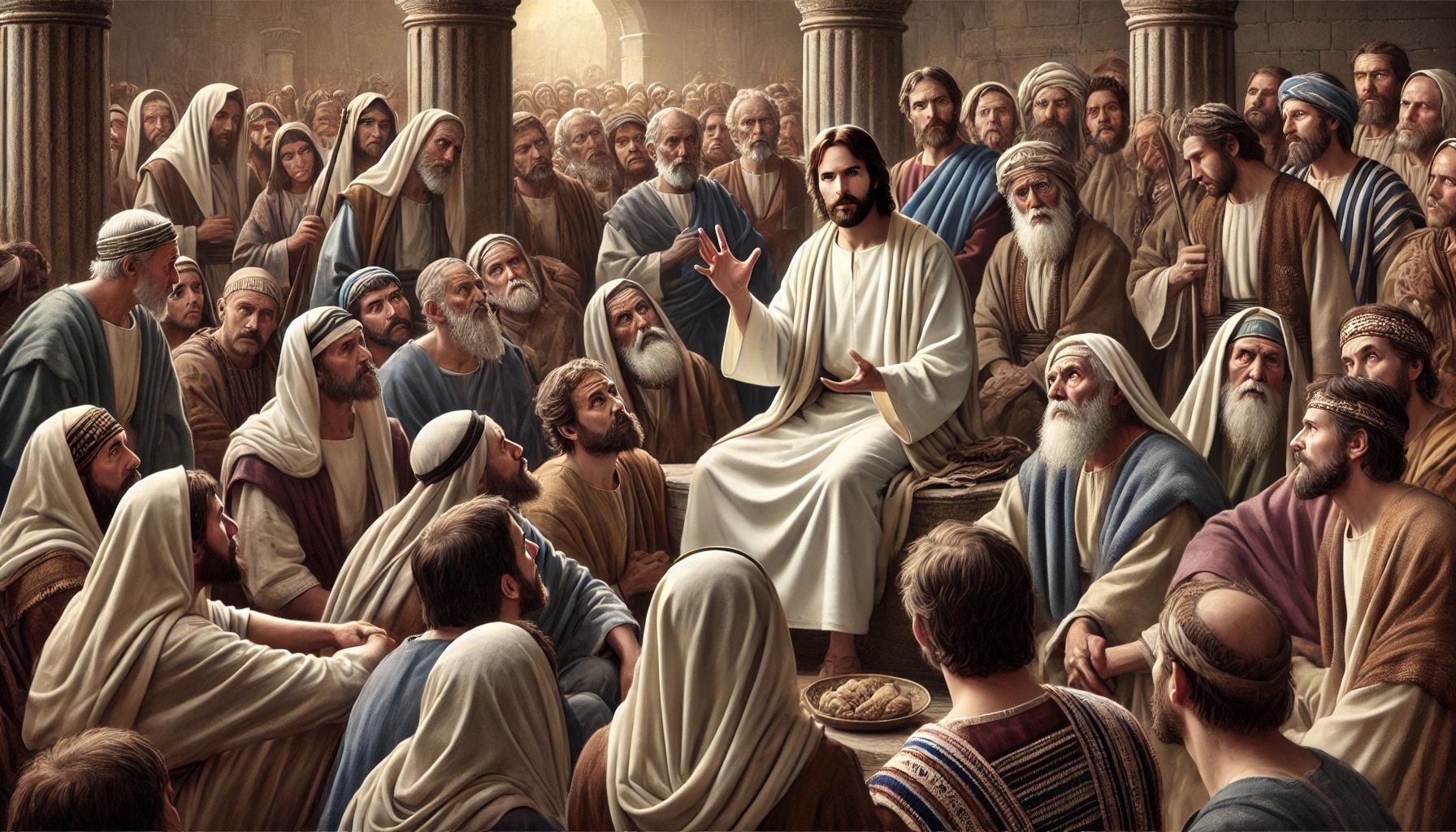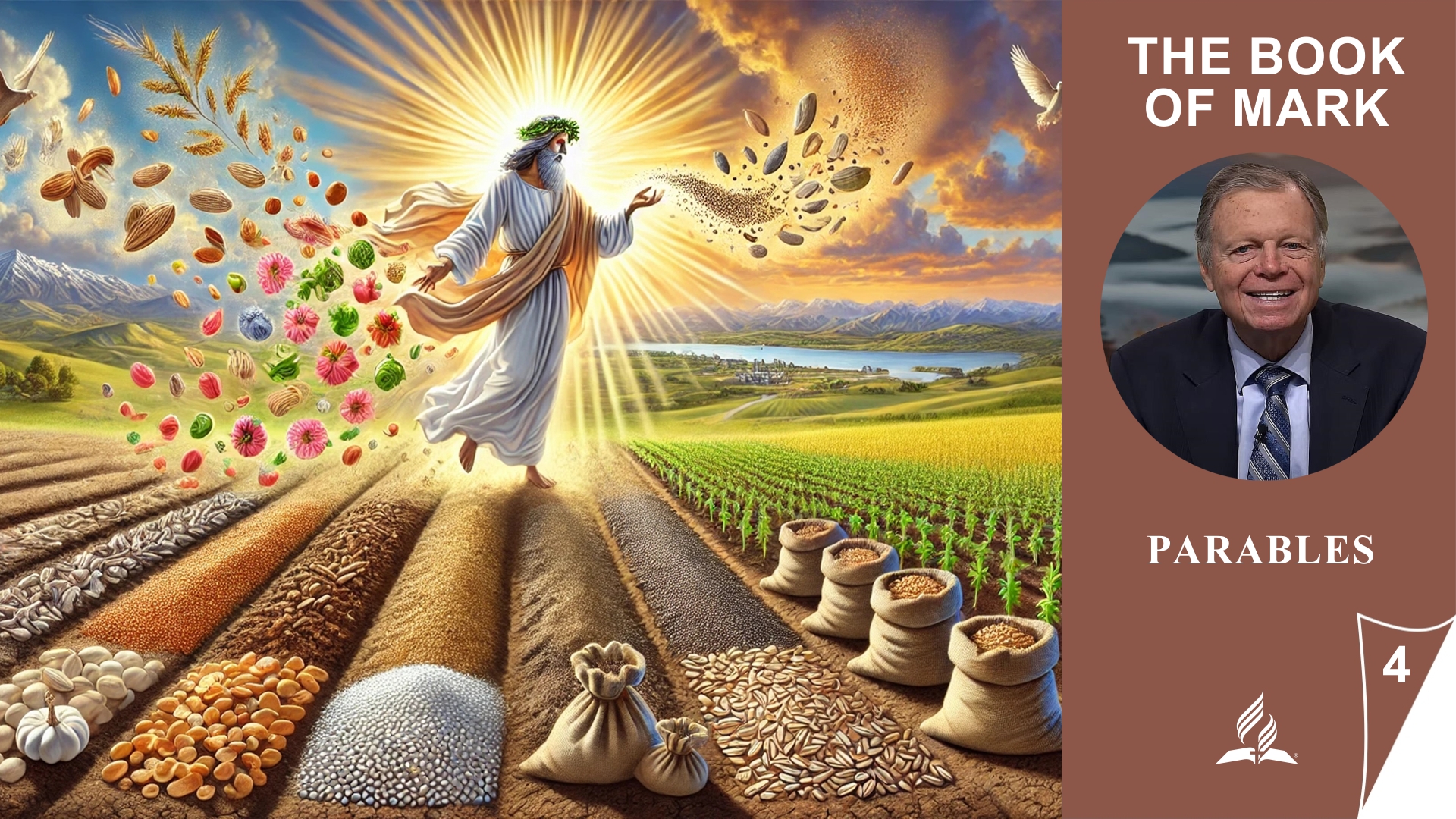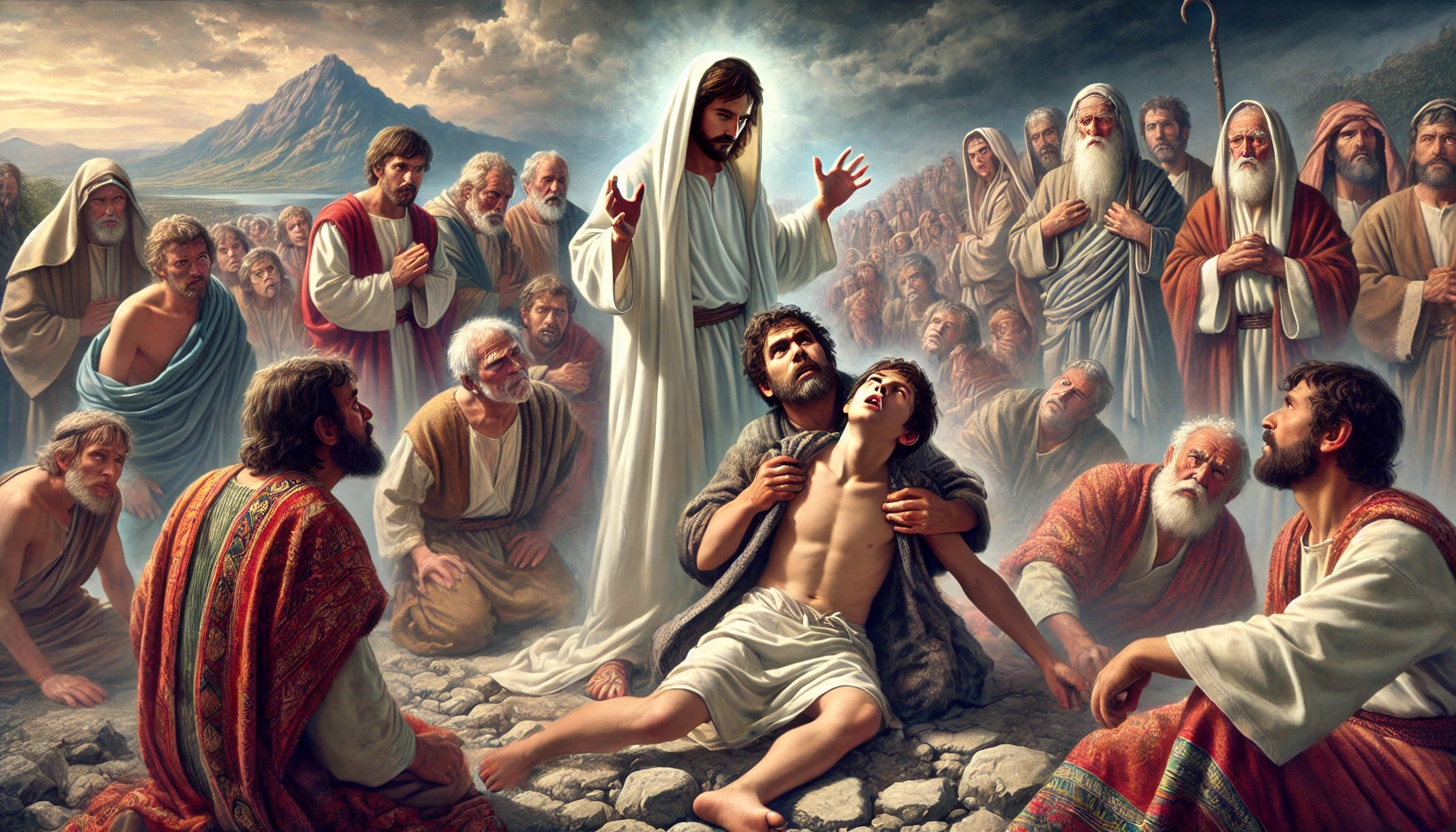

Lesson 4.Parables
The Revelation of the Kingdom of God through Jesus’ Parables
In Lesson 4, we delve into the fascinating world of Jesus’ parables. These stories, told in simple images and everyday scenes, contain profound spiritual truths and teach us about the nature of the Kingdom of God, the human heart, and the path of faith.
The Significance of the Parables: Parables are more than just simple stories. They are tools that Jesus used to convey complex spiritual truths in an understandable form. By using images and examples from daily life, Jesus could engage his listeners on a deeper level and provoke thought. These narratives were both accessible and challenging, offering insights to those who were willing to listen and understand.
Structure and Themes of the Lesson:
-
The Parable of the Sower (Mark 4:1–9): This parable illustrates how the word of God is received differently by different people. The various types of soil represent the different states of the human heart.
-
Jesus’ Interpretation (Mark 4:13–20): Jesus explains the deeper meaning of the Parable of the Sower to his disciples, emphasizing the importance of a receptive heart for spiritual growth.
-
The Reason for the Parables (Mark 4:10–12): Here, Jesus explains why he teaches in parables and clarifies that these stories reveal the readiness of the heart.
-
Lamp and Measure (Mark 4:21–25): These parables emphasize the necessity of making the light of truth visible and the generosity in giving and receiving.
-
The Parable of the Growing Seed and the Mustard Seed (Mark 4:26–32): These parables show the mysterious and wonderful growth of the Kingdom of God, which begins small and grows into something great.
-
Meaning and Application: Jesus taught his disciples step by step and explained everything to them. This method highlights the importance of gradual learning and deepening in faith.
4.1 The Parable of the Sower
The Importance of Receptivity for the Success of God’s Word
Read Mark 4:1–9. What are the different types of soil, and what happens to the seeds that fall on them?
The Parable of the Sower in Mark 4:1–9 describes four different types of soil and the fate of the seeds that fall on them:
-
The Path: The seeds that fall on the path are immediately eaten by birds. This shows that sometimes God’s word doesn’t even have a chance to take root in people’s hearts because it is quickly taken away by external influences.
-
Rocky Ground: The seeds that fall on rocky ground sprout quickly, but because the soil is shallow, the plants wither under the sun and don’t survive. This symbolizes those who initially receive God’s word with joy but fail to develop a deep faith and quickly fall away during tough times.
-
Thorny Ground: The seeds that fall among thorns grow but are eventually choked by the thorns and produce no fruit. This represents people who hear the word, but their faith is stifled by worries, wealth, and worldly desires, preventing them from bearing spiritual fruit.
-
Good Soil: The seeds that fall on good soil produce a bountiful harvest, yielding thirty, sixty, or a hundred times what was sown. This stands for those who hear and accept God’s word and bear fruit by aligning their lives with the gospel and putting it into practice.
The parable emphasizes the importance of receptiveness and the spiritual condition of people for the effectiveness of God’s word. It shows that the same word can produce different outcomes depending on the “soil” of the heart it falls on. While three out of four types of soil show no lasting success, the good soil highlights the rich reward achieved through faithful following and steadfast faith.
Analyzing the parable slowly and thoroughly helps us understand the different reactions people have to God’s word and recognize the challenges and rewards of discipleship. It underscores the risks of failure but also the magnificent results of a fruitful, faith-filled life.
What other spiritual lessons can we learn from nature?
Nature offers a wealth of spiritual lessons that can help us gain deeper insights into our spiritual lives. Here are some of them:
-
Patience and Timing:
-
Example: Plants need time to grow and bear fruit. The seasons show that everything has its time.
-
Lesson: Spiritual maturity and progress require patience. There are times for sowing and times for reaping. We must learn to trust God’s timing.
-
-
Consistency and Perseverance:
-
Example: Rivers carve deep valleys in rocks over time.
-
Lesson: Consistency and perseverance in faith can overcome obstacles. Continuous prayer, study, and service make us spiritually stronger and more resilient.
-
-
Diversity and Unity:
-
Example: A forest consists of many different trees, plants, and animals, all forming a healthy ecosystem together.
-
Lesson: Diversity in the community is a blessing. Each person has different gifts and talents that together strengthen the kingdom of God.
-
-
Renewal and Restoration:
-
Example: After a forest fire, the land begins to regenerate, and new life springs up.
-
Lesson: In our lives, too, there are times of destruction and loss, but through God’s grace, we can experience renewal and restoration.
-
-
Humility and Dependence:
-
Example: Plants and animals depend on each other and their environment.
-
Lesson: We depend on God and the community of believers. Humility means acknowledging our dependence on God’s grace and guidance.
-
-
Transformation and Growth:
-
Example: A caterpillar transforms into a butterfly.
-
Lesson: Spiritual growth often involves transformation. Through God’s work, we can break free from old habits and sins and begin a new life in Christ.
-
-
Fruitfulness and Multiplication:
-
Example: A single seed can grow into a plant that produces many more seeds.
-
Lesson: Our spiritual lives should be fruitful and influence others. We are called to spread the gospel and bear spiritual fruit.
-
-
Dependence on Light:
-
Example: Plants need sunlight for photosynthesis.
-
Lesson: We need the light of Christ to grow spiritually. His presence and word illuminate our path and give us life.
-
-
God’s Sovereignty and Care:
-
Example: Nature follows the laws set by God and shows His care by providing for living beings.
-
Lesson: We can trust that God is sovereign and caring. He takes care of our needs and guides us according to His perfect plan.
-
-
Changing Seasons:
-
Example: Each season brings its own challenges and beauty.
-
Lesson: Our spiritual lives have different phases. In each phase, we can experience God’s presence and guidance. Difficulties and dry periods can shape us just as much as times of growth and harvest.
-
By observing and reflecting on nature, we can learn many profound lessons for our spiritual lives and deepen our relationship with God.

The Parable of the Sower in Mark 4:1–9 offers valuable insights that can help us better understand and live our faith and daily lives. Here are some connections we can make:
-
The Path (Mark 4:4):
-
Daily Life: External influences such as negative media, critical people, or distracting worries can prevent good thoughts and positive impulses from taking root in us.
-
Faith: Spiritual truths and teachings can easily bounce off if we don’t open our hearts to God’s word and allow everyday life to distract us.
-
-
Rocky Ground (Mark 4:5–6):
-
Daily Life: There are situations where we quickly get excited about a new idea or project, but as soon as difficulties arise, we lose motivation.
-
Faith: Our faith needs to develop deep roots to withstand times of testing and difficulties. Superficial enthusiasm without deep understanding leads to a fragile faith.
-
-
Thorny Ground (Mark 4:7):
-
Daily Life: Worries, stress, and material desires can consume our energy and attention, preventing us from focusing on truly important things.
-
Faith: Worldly worries and the pursuit of wealth can choke our spiritual progress. It is important to set priorities and create space for spiritual growth.
-
-
Good Soil (Mark 4:8):
-
Daily Life: Working and living in a supportive environment can help us reach our full potential. Support, encouragement, and good conditions foster success.
-
Faith: A receptive, prepared heart can receive Christ’s teachings and bear abundant fruit. Spiritual growth occurs when we actively integrate God’s word into our lives and act upon it.
-
Spiritual Lessons from Nature and Their Application to Daily Life and Faith:
-
Patience and Timing:
-
Daily Life: Big projects or personal goals require time and patience. We shouldn’t expect immediate results but work on them continuously.
-
Faith: Spiritual growth is a process. We need to be patient and trust that God will work at the right time.
-
-
Consistency and Perseverance:
-
Daily Life: Perseverance and steady work can lead to great success in the long term, even if progress seems slow initially.
-
Faith: Consistency in prayer, Bible study, and service strengthens our faith and helps us remain steadfast even in difficult times.
-
-
Diversity and Unity:
-
Daily Life: Different people and skills enrich teams and communities. Cooperation and mutual support are important.
-
Faith: The diversity of gifts in the church strengthens the entire body of Christ. Each individual has a unique role in God’s kingdom.
-
-
Renewal and Restoration:
-
Daily Life: After crises or setbacks, we can recover and start anew. Changes offer opportunities for growth.
-
Faith: God continually offers us the chance for renewal. Through repentance and conversion, we can begin a new life in Christ.
-
-
Humility and Dependence:
-
Daily Life: We often rely on the support and cooperation of others. Successes are rarely the result of solo efforts.
-
Faith: We should acknowledge our dependence on God and seek His guidance in our lives. Humility enables us to accept God’s will.
-
-
Transformation and Growth:
-
Daily Life: Personal development and change are essential aspects of life. Through learning and adaptation, we grow.
-
Faith: Spiritual growth involves transformation. Through the Holy Spirit, we are shaped into new people in Christ.
-
-
Fruitfulness and Multiplication:
-
Daily Life: Our actions and decisions can have far-reaching impacts. Positive behavior can inspire and influence others.
-
Faith: A fruitful spiritual life positively influences others and helps spread the gospel. Our works should reflect God’s love and grace.
-
-
Dependence on Light:
-
Daily Life: Good orientation and clear goals are crucial for success. Without guidance, we are in the dark.
-
Faith: Christ is the light of the world. His teachings and example provide us with guidance and strength for our spiritual lives.
-
-
God’s Sovereignty and Care:
-
Daily Life: Trusting in things we cannot control brings peace. We recognize that not everything is in our hands.
-
Faith: God is sovereign and cares for us. We can trust that He knows our needs and guides us on His path.
-
-
Changing Seasons:
-
Daily Life: Changes and transitional periods are part of life. Each phase brings its own challenges and opportunities.
-
Faith: Our spiritual lives go through different phases. In each phase, we can seek God’s presence and rely on His guidance.
-
By integrating these lessons into our daily lives, we can deepen our faith and live a life that aligns with God’s will.











